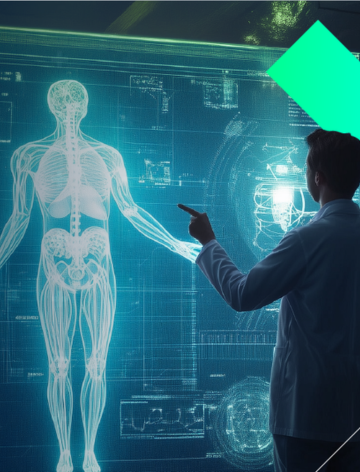About Us
TLV BioBank is a hospital-based biomedical resource dedicated to collecting and storing biological samples alongside de-identified clinical, pathological, and demographic information from patients treated at Tel Aviv Sourasky Medical Center. Our biobank provides researchers from academia and industry access to high-quality biospecimens, supporting studies aimed at improving the understanding, diagnosis, and treatment of diverse medical conditions.
Available Samples
Our biobank team collects a variety of human biospecimens, either retrospectively or prospectively, depending on the study design and clinical setting. Samples are collected from patients with a range of medical conditions, including malignant and benign tumors, rheumatologic diseases, and other clinical backgrounds. The biobank also includes samples from healthy donors without a specific diagnosis, collected during clinical care. Access and Collaboration
Researchers from within the hospital, external academic institutions, and the life sciences industry are welcome to request access to the biobank’s resources. Ethical approval from the Institutional Helsinki Committee (IRB) is required in order to use samples and associated data for research purposes. In such applications, researchers may request for exemption from seeking re-consent, as all donors have already signed the biobank’s informed consent form. We are available to assist in assessing feasibility and guiding researchers through the request process. Breast cancer is detectable from peripheral blood using machine learning over T cell receptor repertoires Neutrophil extracellular traps are associated with poor response to neoadjuvant therapy and poor survival in pediatric osteosarcoma The compositional behavior of the human T cell receptor repertoire in ovarian cancer compared to healthy donors Ovarian cancer is detectable from peripheral blood using machine learning over T-cell receptor repertoires Association of a Third Dose of BNT162b2 Vaccine With Incidence of SARS-CoV-2 Infection Among Health Care Workers in Israel Extracellular Vesicle-Derived DNA vs. CfDNA as a Biomarker for the Detection of Colon Cancer Patient-derived Tumor Spheroid Cultures as a Promising Tool to Assist Personalized Therapeutic Decisions The human tumor microbiome is composed of tumor type–specific intracellular bacteria Personalized Ubiquitination Signatures for Predicting Response to Proteasome Inhibitor-Based Therapy of MM Patients Proinflammatory macrophages promote multiple myeloma resistance to bortezomib therapy
Information & Resources
Recent Publications
Zuckerbrot-Schuldenfrei, M., Raphael, A., Zilberberg, A. et al.
npj Syst Biol Appl 11, 89 (2025).
Baron S, Binenbaum Y, Maman R, Fidel V, Shusterman A, Vaisman D, Sher O, Manisterski M, Shukrun R, Rössig C, Elhasid R.
Front Oncol. 2025 Mar 19;15:1472716. doi: 10.3389/fonc.2025.1472716. PMID: 40177239; PMCID: PMC11961948.
Zuckerbrot-Schuldenfrei, M., Zilberberg, A. & Efroni, S.
Sci Data 12, 175 (2025).
Highlight Publications
Miriam Zuckerbrot-Schuldenfrei, Sarit Aviel-Ronen, Alona Zilberberg, Sol Efroni.
Briefings in Bioinformatics, Volume 25, Issue 2, March 2024, bbae075.
Spitzer A, Angel Y, Marudi O, et al.
JAMA. 2022;327(4):341–349.
Thakur K, Singh MS, Feldstein-Davydova S, Hannes V, Hershkovitz D, Tsuriel S.
Genes. 2021; 12(8):1171.
Hofmann S, Cohen-Harazi R, Maizels Y, Koman I.
BioRxiv. 2021 Jan 1;2021.06.26.450027
Nejman D, Livyatan I, Fuks G, Gavert N, Zwang Y, Geller LT, Rotter-Maskowitz A, Weiser R, Mallel G, Gigi E, Meltser A, Douglas GM, Kamer I, Gopalakrishnan V, Dadosh T, Levin-Zaidman S, Avnet S, Atlan T, Cooper ZA, Arora R, Cogdill AP, Khan MAW, Ologun G, Bussi Y, Weinberger A, Lotan-Pompan M, Golani O, Perry G, Rokah M, Bahar-Shany K, Rozeman EA, Blank CU, Ronai A, Shaoul R, Amit A, Dorfman T, Kremer R, Cohen ZR, Harnof S, Siegal T, Yehuda-Shnaidman E, Gal-Yam EN, Shapira H, Baldini N, Langille MGI, Ben-Nun A, Kaufman B, Nissan A, Golan T, Dadiani M, Levanon K, Bar J, Yust-Katz S, Barshack I, Peeper DS, Raz DJ, Segal E, Wargo JA, Sandbank J, Shental N, Straussman R.
Science. 2020 May 29;368(6494):973-980.
Tsubery H, Lerman G, Kronenfeld G, Sela I, Merbl Y, Itzhaki-Alfia A, Trestman S, C Cohen Y, Avivi I
Blood. 2019 Nov; 134 (Supplement_1): 3371.
Beyar-Katz O, Magidey K, Reiner-Benaim A, Barak N, Avivi I, Cohen Y, Timaner M, Avraham S, Hayun M, Lavi N, Bersudsky M, Voronov E, Apte RN, Shaked Y.
Mol Cancer Res. 2019 Nov;17(11):2331-2340

